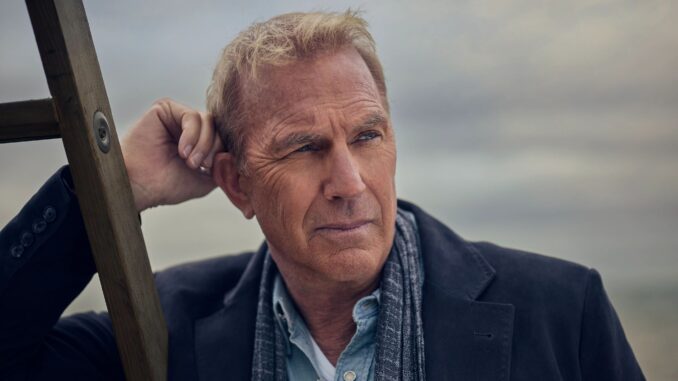
The wind across the high plains of Montana doesn’t mourn; it simply howls, an ancient, untamed sound that has witnessed generations rise and fall. It whispers of sacrifice, of ambition, and of an unwavering, brutal love for the land. For six seasons, that wind carried the gravelly voice and flinty resolve of John Dutton, the patriarch of the Yellowstone Ranch, a man whose very silhouette against the vast, rugged landscape was a declaration of defiance. Now, with whispers of his departure rippling through the canyons of narrative, the show faces its most profound challenge: to carry on, to survive, without its immovable center.
John Dutton wasn’t merely a character; he was the bedrock, the gnarled roots from which the entire sprawling, violent, and beautiful saga of Yellowstone grew. His eyes, often narrowed against the glare or the weight of the world, saw a legacy not as property but as destiny. He was a man out of time, a living monument to an America that was rapidly fading, whose values were forged in the unforgiving crucible of the frontier. He protected his land with the ferocity of a grizzly, his family with a desperate, often misguided, love, and his way of life with an unwavering moral code that bent only to the needs of the Yellowstone. To imagine the show without his stoic presence, his terse pronouncements, or the sheer gravitational pull he exerted on every other character, feels like imagining the ranch itself without the mountains—a landscape bereft of its defining feature.
His absence, however it’s written into the narrative, leaves a chasm, not just in the storyline, but in the very soul of the show. Who will sit in that weathered leather chair, sip the whiskey, and stare out at the dawn with the weight of a kingdom on his shoulders? Who will issue the commands that send Rip and the bunkhouse boys to the “train station”? The war for the Yellowstone, a war that John had waged almost single-handedly against developers, politicians, and the encroaching modern world, does not simply cease because its primary warrior has fallen. Instead, it intensifies, morphing into something more chaotic, more desperate, because the ultimate defense – John Dutton – is gone. The stakes, paradoxically, climb higher.
But this very void, this sudden, terrifying silence where John Dutton once stood, forces the show to confront its own legacy, to prove that its heart beats beyond the pulse of one man. The “show must carry on” is not merely a pragmatic decision for a popular series; it is a profound narrative imperative. It demands that the secondary characters, who have always orbited John’s immense gravity, now step into their own sun.
Beth Dutton, the venomous protector, the corporate shark with a soul scarred by her past and devoted to her father’s vision, will undoubtedly become the vengeful general. Her ruthlessness, once merely a weapon in John’s arsenal, will now be the main force of defense, perhaps even aggression. Kayce, the conflicted soul, caught between the ranch’s demands and his family’s peaceful aspirations, may finally be forced to embrace the full, brutal weight of his birthright, becoming the ranch’s reluctant, haunted warrior. And Rip Wheeler, the quintessential loyalist, the embodying of the ranch’s dark code and its unbreakable spirit, will carry the torch of duty, perhaps becoming the grizzled, silent guardian he was always destined to be, a living reminder of John’s discipline and uncompromising loyalty.
Ultimately, the true patriarch of Yellowstone was never just John Dutton; it was the land itself, the vast, wild, untamed expanse of the ranch. It is the character that predates all the Duttons, the silent witness to their triumphs and tragedies, the enduring prize for which all battles are fought. John Dutton was merely its fiercest advocate, its most dedicated servant. With him gone, the focus shifts, not away from the land, but more intensely onto it. The struggle to protect it, to honor its wild spirit, becomes the collective burden and defining purpose of those left behind.
So, as the Montana sun continues its daily climb over the peaks, casting long shadows across the Dutton land, the Yellowstone saga will indeed carry on. It will do so with a wound, a searing absence at its core, but also with a renewed, desperate energy. The show will explore what it means for a legacy to endure when its founder is gone, how the roots he planted continue to grow, even if the grand old tree itself has fallen. The spirit of John Dutton, his uncompromising love for the land, his ruthless will to survive, will not disappear. It will echo in the choices of his children, in the rustle of the leaves, and in the relentless, unyielding howl of the wind across the Montana plains, ensuring that the show, like the land it celebrates, remains forever wild and unbroken.
